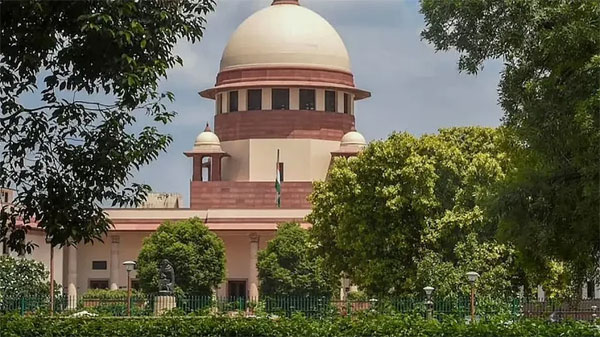Daijiworld Media Network - New Delhi
New Delhi, Oct 29: The Supreme Court has reaffirmed that the mere recovery of tainted currency notes cannot by itself justify a conviction under the Prevention of Corruption Act (PC Act), unless the demand and acceptance of illegal gratification are proven beyond reasonable doubt.
A bench comprising Justices Prashant Kumar Mishra and Joymalya Bagchi made the observation while restoring the acquittal of P. Somaraju, a former Assistant Commissioner of Labour, who was convicted by the Andhra Pradesh High Court in a 1997 bribery case.

The top court criticised the High Court for overturning the trial court’s acquittal “without engaging with its detailed reasoning” and for substituting its own conclusions “without addressing the evidentiary gaps.”
“The statutory presumption under Section 20 of the PC Act is not automatic and arises only once the foundational facts of demand and acceptance are proved,” the bench noted, adding that “suspicion, however strong, cannot take the place of proof.”
The court reiterated that demand for illegal gratification is a sine qua non for an offence under Section 7 of the PC Act, stating:
“Mere recovery of currency notes cannot constitute an offence unless it is proved beyond reasonable doubt that the accused voluntarily accepted the money, knowing it to be a bribe.”
Inconsistencies in the Prosecution’s Case
In its detailed judgment, the Supreme Court pointed out several flaws in the prosecution’s version. Notably, the complainant had instructed an independent witness to stay outside the office during the critical half-hour when the alleged transaction occurred.
Additionally, the phenolphthalein hand-wash test — typically used to detect contact with tainted money — returned negative results for the accused. Two independent defence witnesses also testified that the complainant was alone in the officer’s chamber when the money was allegedly placed in a drawer.
“These circumstances strike at the root of the prosecution's case and cast serious doubt on whether demand and acceptance were proved beyond a reasonable doubt,” the bench observed.
Acquittal Restored
Finding the trial court’s acquittal “reasonable and firmly rooted in evidence,” the Supreme Court set aside the Andhra Pradesh High Court’s 2011 conviction order and restored the 2003 acquittal issued by the Special Judge for SPE & ACB Cases, Hyderabad.
“The appeal is allowed. The impugned judgment and order dated July 8, 2011, passed by the High Court of Andhra Pradesh is set aside, and the order of acquittal by the trial court is restored,” the apex court said, directing that Somaraju’s bail bonds be discharged.
Legal experts say the judgment reinforces the principle that convictions under anti-corruption laws must rest on clear proof of both demand and acceptance, not just possession of cash.